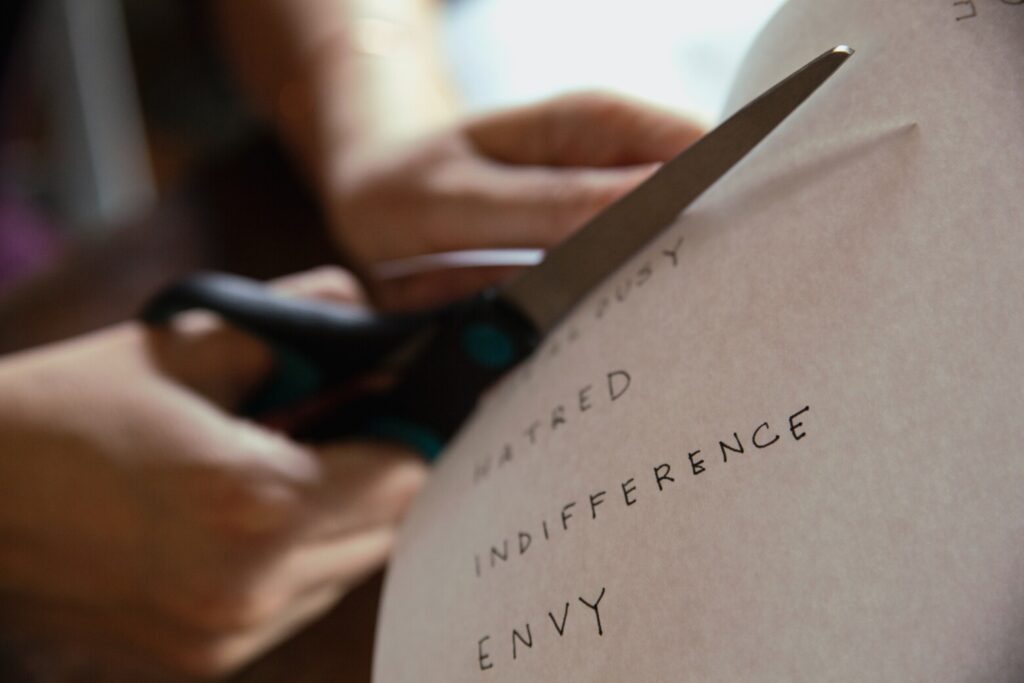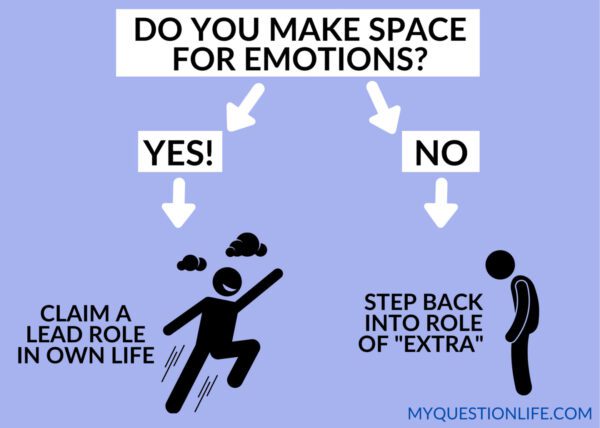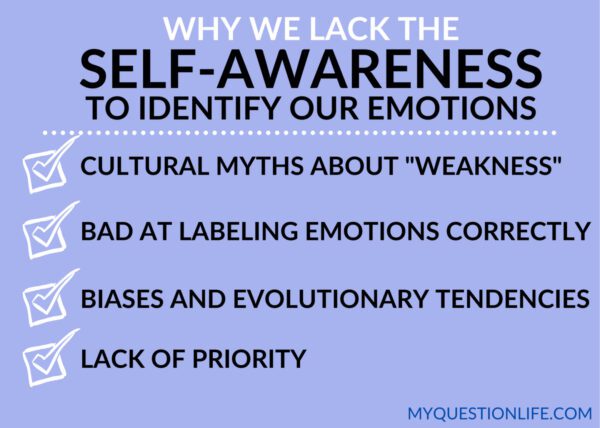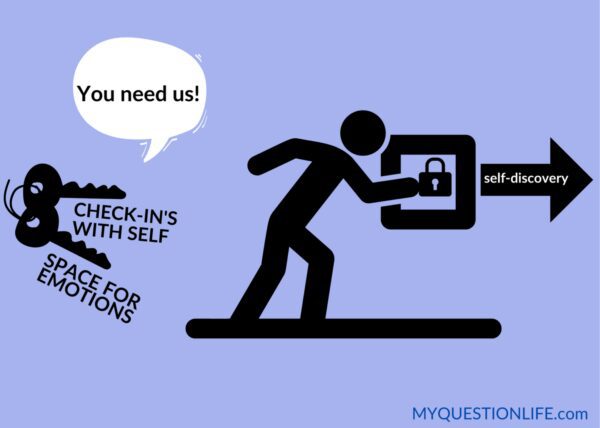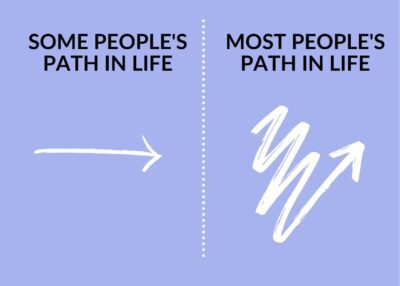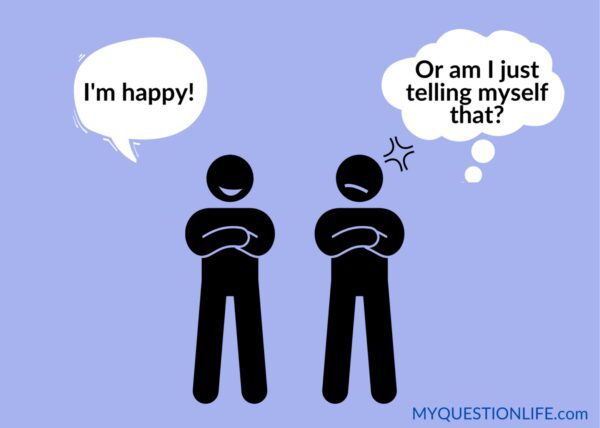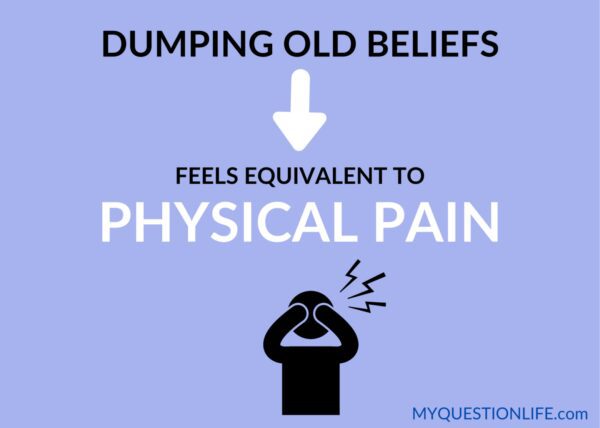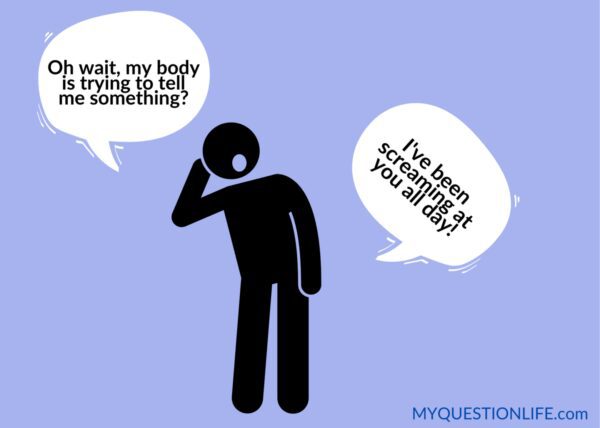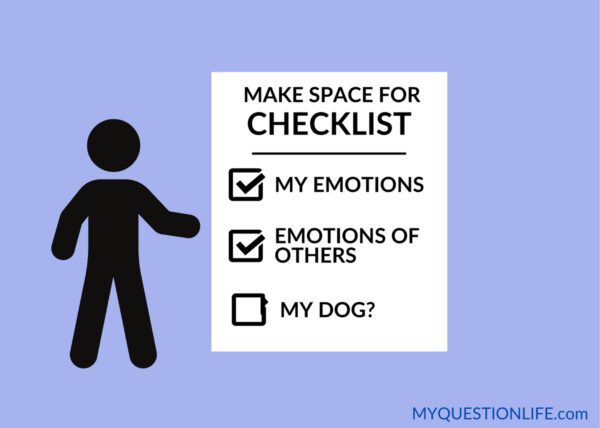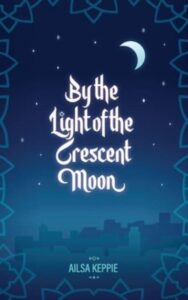Learn why you’re probably not able to make space for emotions, and why you need to.
When people told Ailsa Keppie that she should write a memoir, they weren’t wrong. She’s explored more life adventures than most of us will even see in movies. The woman has gone to schools for music, theater, dance, and circus performance. She’s worked as a trapeze artist and a sex therapist.
Oh, and she converted to Islam and entered a polygamist relationship before moving back to her home country of Canada.
Yet, as Ailsa traversed the world and explored her identity, her experience fell drastically short of true self-exploration. Why?
Because she failed to make space for emotions. While her mind made plans and her body went through the motions, she never stopped to check in with herself. No matter how remarkable Ailsa’s story is, it meant nothing to her when she allowed herself to be pulled through like a puppet.
Now, after years of self-work, Ailsa is reclaiming the starring role in her own story. She’s able to reflect on what she missed. And it’s an element that many of us miss, day in and day out.
We don’t make space for emotions. In doing so, we relinquish our lead role for that of an extra.
.
Make Space for Emotions: What does it mean to make space for emotions?
We all know what emotions are. We also know that they can be powerful forces in our lives. What we don’t always acknowledge, however, is how complicated they can be.
The science side of things would tell us that emotions are a chemical reaction in our body. An evolutionary view adds that emotions are rooted in our survival instincts, therefore dictating our behaviors more than we realize. And, of course, the everyday perspective teaches us how common and influential emotions are in our lives.
The problem is that many of us lack the self-awareness to identify our emotions accurately. There are many reasons why this phenomenon happens, but a few primary culprits include:
- Cultural myths around emotions and vulnerability (and how they are a sign of weakness)
- Societal pitfalls in labeling emotions accurately
- A lack of self-awareness due to evolutionary tendencies and biases
- A lack of prioritization around emotional awareness
We might be able to take on one of these obstacles. But all four fighting together, like some type of band of armed White Walkers from the Game of Thrones? Yeah… that’s an intimidating front for anyone.
Don’t be (too) scared by this visual. We can fight them – we just need to be armed with the right ammo. But first, why is it so important to make space for emotions in the first place?
.
Self-Exploration Means Nothing Unless We Make Space for Emotions
Ailsa grew up in a household that didn’t spend much time talking about emotions. Therefore, she quickly learned to attach her self-worth to external standards. She became a high-achieving student, attending a specialized musical high school and then going to Scotland for a degree in physiology. After that, she bounced around a bit between school and work.
“I just kind of dove into trying to be the best at whatever I was doing,” Ailsa said to me in our interview. It became very clear that, even from a young age, she never took the time to make space for emotions or self-awareness in her life.
That being said, she did discover her passion for performance. However, with this self-discovery came another onslaught of external expectations. Ailsa described the barrage of messages from her performance teachers to expand her sense of self.
The only thing about these seemingly helpful “self-expansion” exercises? They meant nothing without the crucial missing piece. As we undertake self-discovery, we’ve got to carve out time to check in with ourselves. Unless we make space for emotions, the expansion tears us apart.
Ailsa still remembers this feeling of destruction. “I actually felt like I didn’t know who I was anymore, because I’m trying all of these things, but nobody is teaching me to listen to my inner compass.”
During this time, Ailsa found herself charmed by a man from Morocco. It didn’t take long, in her inner compass-less state, to get caught up in infatuation. The next thing she knew, she found herself changing her life yet again – this time in accordance with his rules and religion.
Instead of making time to question her feelings, she dove into her default: try to be the best.
.
Most of Us Don’t Make Space for Emotions in Our Journeys
Ailsa’s journey may sound unique, but it’s not that much different than any of ours – at least in the thematic sense. We all want to find direction in life and bring purpose into our everyday work. Yet most of us get caught up in cultural expectations without checking in with ourselves.
I wrote a whole post about the myths and truths behind finding direction in life. Essentially, there isn’t one “right” path or “direction” to head in. Life is about the ever-unfolding journey of our personal evolution and values. But to tackle this evolution, we’ve got to make space for emotions and be present with our feelings.
If we don’t, we turn exploration into expectation. Wandering becomes going astray, and we lack the tools to find our way back to the correct course.
Had Ailsa stopped along her journey, she could’ve asked herself:
- How am I feeling about this?
- Does this choice align with my values?
- What are my emotions telling me about where I am?
Any one of the questions might have clued her into the truth she didn’t embrace until many years later: this isn’t where I want to be.
.
A Lack of Self-Awareness
Three years into her life in Morocco, and two years into adding a second wife to her marriage, a documentarian for Al Jazeera interviewed Ailsa. Ailsa described her role as mother and wife as a foreign woman living in a funamendtalist family in Morocco. After many conversations, the interviewer asked, “Are you really happy here?”
“Yes, I’m really happy here,” Ailsa said immediately.
Then, for just a moment, Ailsa allowed herself to consider the woman’s question. Was the woman picking up on something that Ailsa wasn’t? Could there be a different answer?
But right away, Ailsa did what she had conditioned herself to do. Rather than make space for emotion, she shut the door to any genuine introspection. She slipped back into the role she thought she was supposed to play as a good Muslim wife. I am happy, she told herself, and continued to tell herself this lie for two more years.
Do you lack self-awareness? See if any of these 6 Signs You Lack Self-Awareness apply to you.
.
Prioritize Being Self-Aware: What Happens When We Make Space for Emotions
Now, Ailsa can look back and see the truth painfully clear; she was far from being happy in that time period of her life. To an outsider, it was probably obvious. How could Ailsa have been so blind to her own life?
I couldn’t help but think, after hearing Ailsa’s story, How could she not see the truth? But then I really thought about how often I adhere to cultural expectations without realizing it. I’ve strived to achieve the highest status of what I’m doing, even if it doesn’t bring me joy. I’ve battled with acceptance and rebellion with what it means to be female. Heck, I spent three years with an eating disorder before even realizing I had one.
That’s the tricky thing about self-awareness. By the time we reach adolescence, cultural messages have become so ingrained in us that we don’t even realize that we should disagree. In fact, studies have shown that shedding our psychological beliefs can have the same effect on us as experiencing physical pain. And these psychological beliefs infiltrate everything that we do – from our thoughts to decisions to everyday life.
We all face the perils of societal expectations and lack of self-awareness. Now, let’s talk about what we can do about it.
.
Somatic Work: Get In Touch with Your Body and Your Emotions
The reason that our physical responses precede our mental ones is because our emotional brain is at the helm of our body. Despite the fact that we like to believe our thinking brain is in charge, this isn’t the case. We feel first and think second.
This is why it’s so detrimental when we choose to ignore our emotions in place of our cognitive thinking. Our thinking is often inaccurate, whether it’s due to brain biases, emotions, or cultural messaging.
Ailsa thought she was happy – even thought this was far from the truth.
Fortunately, we can become more self-aware of our emotions and bodies. This is called embodiment self-awareness, and it focuses on tuning into our bodies in the present space.
Embodiment self-awareness might include things like:
- Identifying the emotion you’re feeling
- Recognizing the physical “tells” in your body
- Feeling what your instinctive urges want you to do
- Labeling your sensory experience, both internally and externally
To achieve any of these abilities, we must make space for emotions in the present. By checking into how we’re feeling, we can uncover subconscious truths, free ourselves from trapping reactions, and relearn better behaviors.
We can also rediscover our inner truth.
If you want to learn more about how to make space for emotions, check out these 6 Steps to Develop Your Embodiment Self-Awareness.
.
How to Make Space for Emotions and Why It’s Important to Hold Space for Feelings
1. Improve your self-awareness
Self-awareness is at the heart of all important self-discovery – yet most people don’t even acknowledge it as something to develop. No matter what we do, we can’t always control our emotions. What we can do is identify them. Once we begin to be self-aware of our feelings, thoughts, and actions, we can put in the work to manage them. Self-awareness also encompasses our values, dreams, relationships, and goals.
- Why Self-Awareness is Important: Recognize What You Can Control
- 6 Examples of Self-Awareness in Everyday Life
.
2. Learn how to trust yourself again
You must learn how to trust yourself “again” because at one point, many years ago, you did trust yourself. Some of us haven’t trusted ourselves since childhood. At that point, society stepped in and infiltrated our brains with expectations. We began to look externally instead of internally. Rebuilding trust in yourself and your inner compass takes time and patience. You’ve got to check in with yourself again and again. Eventually, you’ll learn what’s real versus what’s not.
- How to Be True to Yourself: The Hidden Truth We Need to Embrace
- How to Define Your Personal Philosophy
.
3. Get in touch with your body
Our bodies are more honest than our minds (even though we like to rely on our cognitive, biased thoughts). Unfortunately, too many of us disregard our bodies as a vehicle rather than as a part of ourselves. The more you can get in touch with your body, the quicker you’ll develop your self-awareness. Often our bodies give us “tells” of how we’re really feeling. With this information, we can make more informed decisions.
- How Our Bodies Affect Our Choices in a Powerful Way (And How We Can Harness this Power)
- What is Intuition?
.
4. Practice self-compassion and vulnerability
The journey to self-discovery is not easy; nor does it ever end. Every time we embrace a new change, we’ve got to let go of the one we previously held. This can be incredibly difficult – and incredibly vulnerable. The last thing you want to do is add a layer of shame onto your already challenging emotions. Practice self-compassion as you try to find your way. Being vulnerable, while challenging, will be the best thing you can do for yourself.
- How to Be Vulnerable in Everyday Life
- How to Get Comfortable Being Uncomfortable: Lean Into Discomfort
.
5. Seek support from others
Painful emotions increase when we’re alone – yet that’s what most of us default to when feeling guilt or shame. Humans are designed to have social relationships. This need for belonging means that we’re better off with others. As you embark on your self-discovery journey, make space for emotions with others. Seek support from people you trust. You may not realize how powerful this will be.
- 8 Steps to Create a Sense of Belonging in Life
- How to Cultivate Vulnerability in a Relationship Even If It Scares You
.
6. Live in the present
A lot of people spend time regretting the past and worrying about the future – without living in the present. We only have the present, however, to truly experience life. We also must develop our self-awareness in the present. While you can still plan ahead, you must learn to make space for emotions in the present moment. It’s the only way you can begin to find your inner truth.
- Doing Versus Being: How to Escape our Productivity Obsession
- A Powerful Trick to Improve your Self-Awareness and Stop Ruminating
.
Make Space for Emotions for Others
Making space for emotions is not solely an individual experience. We also can find ways to make space for others. By learning how to be more vulnerable, we can strengthen our relationships and develop trust that otherwise wouldn’t be possible.
Just as you must devote time and energy to listening to your own feelings, the same applies for others. If you find yourself in a conversion, hold space for the other person to express their emotions – even if it makes you uncomfortable or defensive. Only when we can be truthful with ourselves and others can we grow.
Ailsa talked about how important this is for her as a mother. After a childhood with very little room for emotions, Ailsa prioritizes embodiment self-awareness for her daughters. She gave the example of sitting down with her eldest daughter, who’s dealt with her own struggles, and allowing her to express her feelings – even if they didn’t make Ailsa feel great.
“She had a lot to say to me about how I wasn’t there for her when she was younger. You know, because I wasn’t even there for myself,” Ailsa explained. “And I know it was important to hold space for her to express those emotions. I’ve learned how to become more present, and they definitely feel that difference over the last number of years.”
Emotions need to be felt, acknowledged, and heard to live a self-aware, meaningful life. Step one is embracing this belief.
.
Ailsa Keppie’s Memoir: By the Light of the Crescent Moon
Ailsa’s memoir, By the Light of the Crescent Moon, will launch August 26, 2021, Women’s Equity Day.
When Ailsa Keppie puts on the hijab for the first time, it solidifies her commitment to her new, chosen religion. She gives up the lights and action of the circus for the position of wife and mother, learns Arabic, and moves to Morocco.
A new mother living in a strange country, under foreign rules, Ailsa experiences isolation and racism, as well as romance and sisterhood, in her quest to fit in with her new community. She welcomes another wife into her marriage hoping to experience the peace and joy of a pious life. As the story progresses, cracks appear in her relationships. Things are not as blissful as Ailsa would have others believe. We are drawn into her inner struggle, often seeing the folly of her choices, but championing her to prevail. Torn between her inner voices of duty, shame, longing, and hope, she is determined to find the light that will get her through darkening times.
Ailsa’s story is easily recognizable by women who have dimmed their light in order to survive. For any woman who has faced similar constraints of marriage, religion, or culture, Ailsa’s story will help bring clarity and a sense of knowing she is not alone.
Learn more about Ailsa on her websites:
Follow her on Social Media:
- Instagram @pleasureforhealth
- Facebook @pleasureforhealthyrelationships

